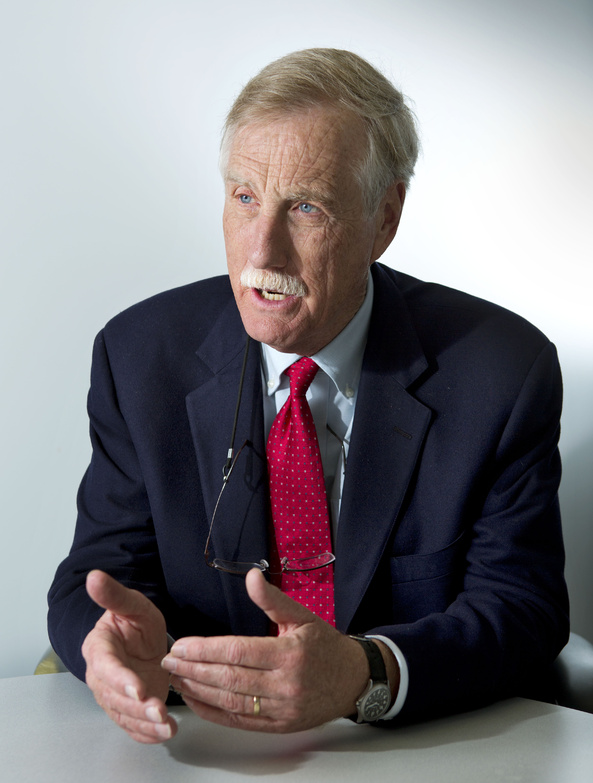PORTLAND — The intelligence community may have to adopt new strategies to deal with so-called lone-wolf terrorists who aren’t directly linked to governments or terror groups, Sen. Angus King said Friday in an interview with The Associated Press.
Two ethnic Chechens from Russia are suspected of acting without aid in setting off a pair of bombs at the Boston Marathon, killing three people and injuring more than 260, which presents new challenges for an intelligence apparatus that has been working to bringing down terrorist organizations since 9/11, King said.
“That may be the serious threat of the future and in some ways it’s a more difficult threat to counter than an organized group like al-Qaida,” King said.
King, who sits on the Senate Intelligence Committee, said it’ll be up to law enforcement and intelligence agencies to determine for sure that the suspects, brothers Tamerlan and Dzhokhar Tsarnaev, didn’t receive help in their alleged plot. Tamerlan Tsarnaev died after a gunbattle with police, and his younger brother is in federal custody.
“There’s a tendency to fight the last war. Before Sept. 11, we were in a Cold War mindset where we were in competition with other governments. Then all of a sudden it was al-Qaida. What concerns me is that this incident … it appears it was two lone wolves, self-motivated and self-arming in effect,” he said.
U.S. intelligence has been effective in infiltrating and attacking al-Qaida, but new techniques would be necessary to target individuals without trampling personal liberties.
“It’s a constant tension between security and individual rights and the Fourth Amendment and the First Amendment. We’re trying to find our way through that,” King said.
King said he thinks the Intelligence and Homeland Security committees should be able to sufficiently investigate intelligence activities that led up to the bombings without need for a special panel or investigation. The goal is to make sure intelligence agencies are communicating, and to apply lessons learned to prevent future attacks, he said.
It would be difficult to stop all terrorist acts because to do so would mean eliminating freedoms that Americans are unwilling to give up, he said.
“Someone asked, ‘How can we secure the Boston Marathon?’ We could do it with 30,000 troops lined shoulder to shoulder along the route. But that’s not the country we want to live in,” he said.
Send questions/comments to the editors.


